Pediatrics
Pediatrics
Diagnosis, treatment and follow-up of pediatric diseases aged between 0-17 are carried out for 7 days/24 hours, by our specialist physicians and experienced healthcare team. In our hospital, outpatient clinics specially designed for children, pediatric emergency and observation rooms, pediatric inpatient service, newborn baby room and newborn intensive care services serve our pediatric patients and their families.
In our pediatric health and diseases department, babies' health and development follow-ups are carried out in line with the recommendations of the World Health Organization and the Ministry of Health. In this context, appropriate vaccination practices, nutrition and development monitoring, necessary laboratory tests and treatments are carried out by our physicians based on the child vaccination calendar, and parent trainings are also provided. In line with our sensitivity to support breastfeeding with breast milk, our hospital has been awarded a baby-friendly hospital certificate. Starting from the pregnancy period, our entire team supports expectant mothers, mothers and babies in every way.
During the pandemic, you can meet with our doctors through our online medical consultation service, which we offer in the pediatrics department, and our online interview system without coming to our hospital.
At our Çakmak Hospital, we provide services with specialist physicians in the fields of pediatric surgery, pediatric cardiology, pediatric neurology, child psychiatry and child physiotherapy, in addition to the pediatrics.
Other pediatric departments at our hospital:
Pediatric Surgery
Pediatric surgery is a discipline that requires 5 years of residency after 6 years of medical school education. All surgical procedures except congenital anomalies, physical deformities at birth and heart diseases are the working areas of pediatric surgery. In addition, circumcision is one of the most frequently performed procedures by pediatric surgeons.
Pediatric Cardiology
Congenital and acquired heart diseases are seen with a considerable frequency among pediatric diseases. Symptoms of pediatric cardiology diseases include murmur, bruising, chest pain, persistent wheezing, developmental delay, frequent breathing, decrease in effort capacity and swelling of the eyelids.
Echocardiographic evaluation can be performed on patients whose electrocardiograms are taken and examined in the department. In the pediatric cardiology department, rhythm holter, 24-hour blood pressure analysis and effort test can be applied.
Pediatric Neurology
Pediatric neurology is the discipline that deals with brain, spinal cord, nerve and muscle diseases in children. In this department, neurological evaluations of premature and risky babies, developmental disorders in children, familial neurological diseases, headache, paralysis, epilepsy, diseases with muscle and nerve damage, cerebral palsy, and behavioral disorders are performed. Magnetic resonance imaging (MRI), computed tomography (CT), electromyography (EMG), and electroencephalography (EEG) tests are used in the diagnosis process in necessary patients.
Child and Adolescent Psychiatry
Mental pediatric diseases such as attention deficit and hyperactivity disorder, autism spectrum disorders, adolescence psychiatric problems, eating disorders, anxiety disorders, problems with identity development, depression, bipolar mood disorder and substance abuse are treated by our department doctors and psychologists.
Pediatric Gastroenterology
Pediatric gastroenterology deals with complaints and diseases related to the digestive system, liver, biliary tract, pancreas, which can be seen in all childhood from birth. During these diseases, nutrition planning, which is often the most important part of the treatment, is carried out by our specialist doctors and specialist dietitians. Imaging and endoscopic interventions required for diagnosis can be performed in private laboratories within our hospital.
Pediatric Endocrinology
Pediatric endocrinology is the department that deals with hormonal diseases that may develop during infancy and childhood. In this context, short stature, growth retardation, gender development diseases, early and late adolescence, diabetes mellitus (diabetes), diabetes insipidus, polycystic ovary, thyroid diseases and bone development diseases constitute the main patient groups.
Pediatric Physiotherapy
Before, during or after birth, diseases such as cerebral palsy, stroke and genetic disorders may occur in children that prevent mental and physical development. These diseases can be accompanied by musculoskeletal disorders as well as disorders in vision, speech, swallowing and cognitive functions. By the child physiotherapy services we offer in our physical therapy center, it is aimed to provide age-consistent life activities and functional skills with the children. By setting goals for children according to their diseases, it is aimed to gain the patient's functions such as holding his head up, sitting, crawling, walking, and grasping the hand.
What are Pediatric Diseases?
There are many types of pediatric diseases. We can list them as follows:
Allergic Diseases in Children
One of the most common reasons for applying to pediatrics departments is allergies. Allergic diseases are encountered in infants from the first months of transition to supplementary food. Especially atopic dermatitis (eczema) and food allergies are the most common allergies in infancy. Allergy in children may disappear spontaneously as they grow up, or it may be permanent in some people.
Urticaria (hives) is another type of common allergy in children. Urticaria is usually caused by infection, but sometimes it can occur as a symptom of food allergy.
Allergic rhinitis manifests itself with symptoms such as nasal congestion and coughing. Allergic rhinitis is likely to decrease spontaneously by aging and it can be more severe due to house dust, mold, pet hair and tree pollen.
Asthma symptoms in children are also frequently seen in the preschool period. Although this situation worries families a lot, it is often a temporary situation and can heal spontaneously. Smoking around the children and being exposed to polluted air for a long time can cause the development of asthma symptoms. However, if there is no such situation, the child must be examined by a pediatric otolaryngologist.
Besides, the treatment of insect and drug allergies is also carried out in our pediatric health and diseases departments.
Causes of Vomiting and Diarrhea in Children
Vomiting and diarrhea in children is one of the infection-related complaints especially seen in children aged 0-5 years. Parasites, bacteria and viruses cause infection in children, causing inflammation on the inner surface of the stomach and intestines. Diarrhea caused by viruses resolves spontaneously, while those caused by bacteria require the use of antibiotics; to understand this, the child is necessary to be examined by a pediatrician.
High Fever in Children
High fever, which is one of the symptoms that worries parents the most, is actually a defense mechanism of the hypothalamus region of the brain. Bacteria, viruses and toxins in the blood cause the hypolatamus, which works like a thermostat, to increase the body's temperature. While the microbes do not divide and multiply rapidly in high fever, the defense cells multiply very quickly. If the fever cannot be reduced with home remedies, a pediatrician should be consulted.
Infectious Diseases in Children
Chicken pox, measles, scarlet fever and mumps are the childhood infectious diseases. Children who spend a lot of time in crowded environments such as parks and schools are more likely to get these diseases. Mass vaccination is absolutely necessary in order to prevent these very dangerous childhood diseases.
Other Diseases Treated in Our Department
- Constipation
- Bronchiolitis
- Intestinal infections
- Pharyngitis
- Upper respiratory tract infections
- Allergic rhinitis
- Asthma
- Skin infections
- Otitis (ear infection)
- Conjunctivitis
- Dermatitis
- Lower respiratory tract infections
- Parasitosis
- Healthy child impression
- Growth and development monitoring
- Breastfeeding counseling
- Acute gastroenteritis
- Connective tissue diseases
- Treatment of vitamin deficiencies
- Thyroid gland diseases
FREQUENTLY ASKED QUESTIONS
What Are the Causes of Excessive Hair Growth in Children?
Physical or familial causes can be considered among the causes of excessive hair growth in children. However, if there is no genetic predisposition, such reasons as hormone imbalances arising from the adrenal gland and excessive hormone secretion from the ovaries or testicles are also causes of excessive hair growth. Hormone disorders may be congenital or may occur later. Cysts and tumors in the adrenal gland or ovaries can also cause hormone disorders. Another reason for excessive hair growth is obesity and polycystic ovary syndrome, which is seen with puberty.
What are the Causes of Anemia in Children?
- We can list the causes of anemia in healthy and undernourished children as follows:
- Iron deficiency: Iron deficiency in children is the most common cause of anemia. If the body does not have enough iron, red blood cells cannot produce the necessary hemoglobin.
- B12 deficiency: If enough vitamin B12 and folic are not taken through food, anemia occurs.
- Chronic diseases: Diseases such as lupus, kidney diseases and arthritis cause anemia by preventing the development of red blood cells. You can apply to our pediatrics department to find out the exact cause of anemia.
- You can apply to our pediatrics department to find out the exact cause of anemia.
Can Children Have Irritable Bowel Syndrome?
Bowel syndrome is one of the most common complaints in children. Especially irritable bowel syndrome is a very common disorder among children's intestinal problems that can occur at a young age. Symptoms include abdominal cramping, pain, bloating, gas, diarrhea or constipation. It is a chronic disease. Symptoms can be controlled with diet, lifestyle changes and stress management recommended after pediatric examination. More severe complaints require medication.
Appointment at Pediatrics
You can contact us on 0850 222 04 94 for more information and appointments about the pediatrics department.
Doctors
-
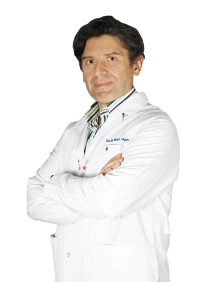
Bekir Muhsin Arpaözü, MD
-
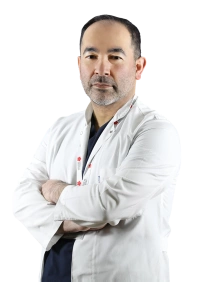
Kürşat Özer, MD
-

Mehmet Demirdöven, MD
-
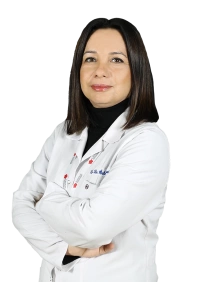
Özlem Cantürk, MD
-
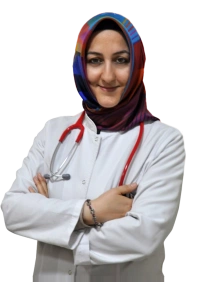
Şuera Oruçlu, MD
-
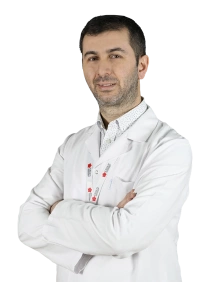
Vural Kartal, MD
-

Ahmet Zeki Celap, MD.
-
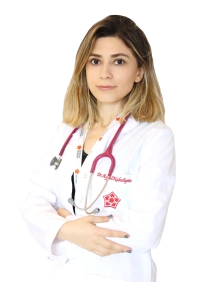
Aygul Nabalıyeva, MD
-
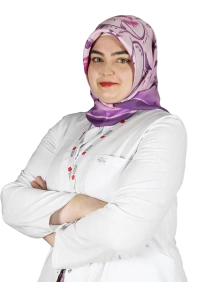
Büşra Cihan, MD.
-
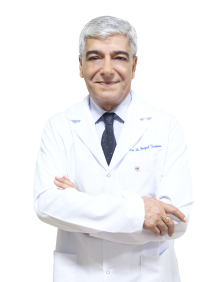
Ertuğrul Unutmaz, MD.
-
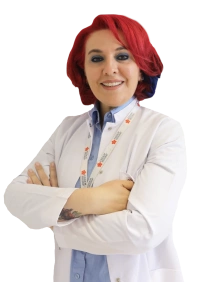
Esra Çetinkaya, MD
-
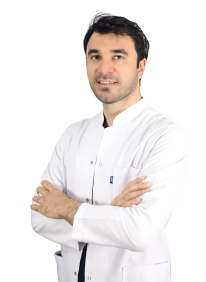
Hafız Mammadov, MD.
-
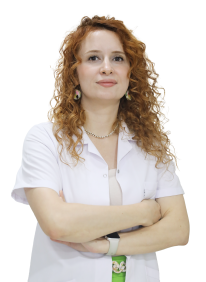
Hatice Polat Menekşe, MD
-
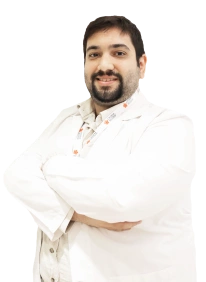
Tufan Torun, MD.
-

Üzeyir İsmayilzada, MD.










































